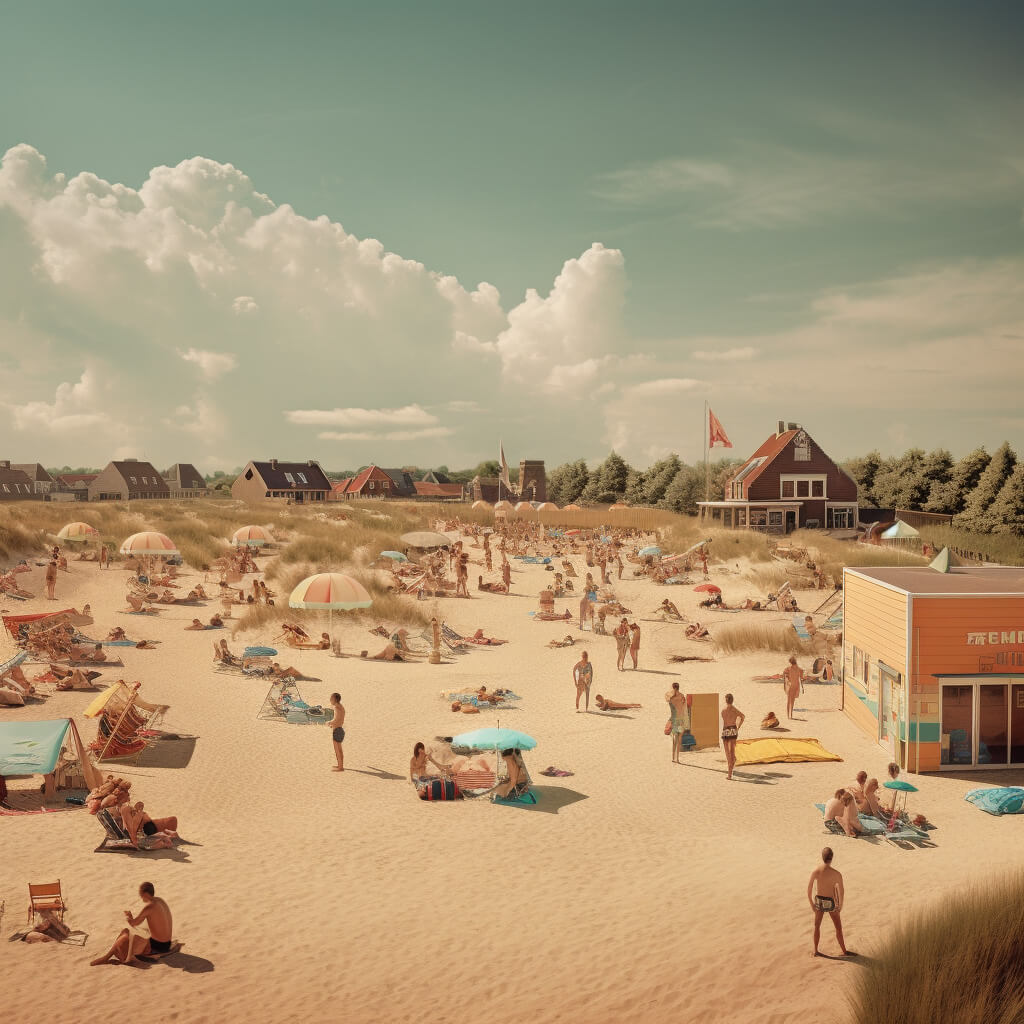As I step ashore, I feel the gentle breeze touching upon my face. A fresh delight in this weather, allegedly ‘remarkably hot’ for this time of the year, once again. The year is 2054, my coastal hometown, once 100 kilometers away from the nearest sea, is a bittersweet reminder of how things could have been.
As a kid, this was a possible future people told me about, projected to become a reality if no measures would be taken to stop or adapt to the rising sea levels. This future also co-existed with a very different one, that during stand-still traffic jams had the most impact: arrays of flying cars – and maybe this highway we are stuck on currently could just as well be turned into a nice park.

Despite these futures being a figment of imagination, they are reflective of current and past times, as well as the way we would like to see the future. Whether it evokes climate anxiety, or dreams of more wholesome living can also indicate a lot about the attitude of today’s society in general: if it’s optimistic or bleak, far away – or very plausible.
Moreover, it can be a catalyst for positive change. As a designer, a strong vision is one of the most important aspects in making impact: and visualizing an ideal future world can help you steer towards that. Especially in a fast changing world, it is needed to be reflective of this direction – one way to do that is extrapolating where you are heading and evaluating that future. Often this brings along questions and extremes, is this going too far, not far enough or can we think bigger? And should progress also always mean newer, more, bigger and better?
One source of conflict is on one hand technology or products and on the other nature. The presence of either of those does not necessarily spell doom for the other, but there are conflicts around the reliance we have or create. Even though we have in the past, could we live without the internet or electricity? Necessities in current day life that massively improved standards of living, but things we survived without for centuries. There are improvements to cherish, but also signals the remaining relevance of elements from the past.

Automotive designer Niels van Roij also notes the fact of how more futuristic his car designs become – the more alluding retro, or natural materials become to add. Our heritage and familiarity of the known are a big part of shaping the unknown future and help to give a handle on uncertainty. This can both be an aid to understand the importance of what we value today, but also should challenge us to look beyond, and wander into new territory to see where we end up.

Heritage design by Niels van Rooij
Comparing and taking the past as reference can also lead to pitfalls, the past is often viewed through rose tinted glasses, memories are flawed and biased towards nostalgia about ‘the good old days’, while more objective measures such as improved global health, quality of education and fall of poverty tell a different story. Still, many futures relate more to a pessimistic future of how the earth and society will end up. This is not inherently bad, as it often stems from inequality, historical events and can invoke critical thinking about today’s practices, but it should not overshadow hope. A future is also one you need to be able to believe in, if you want to make solving problems and improving practices feel like a worthwhile effort and keeping physiological well-being to be able to shape personal futures.
Whether your future fights for revolution, or an evolution from today, thinking about how things could be different, as well as your part in shaping the wind to blow in this direction is a powerful tool to visualize these pathways. In the end, we are all ultimately responsible, not for correctly predicting or executing a future, but for finding ways towards possible positive ones on any scale.

As for my future beach town, the river side gives me hope for shaping a future with an afternoon beach walk that does not require creating modern-day Atlantis.


